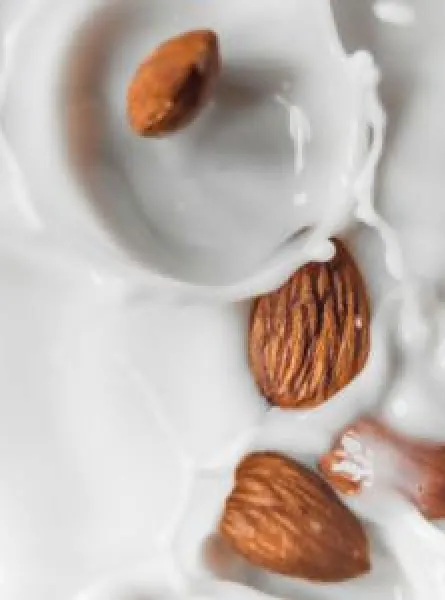
One in six couples hoping to grow their family faces infertility, defined as the inability to conceive after actively trying for 12 months (1). Among cases of difficulty conceiving, 50% are attributed to female factors, 30–40% to male factors (2), and 20–30% to combined causes (1). Ovulatory disorders, sperm abnormalities, and endocrine dysfunctions are major risk factors for infertility. An inadequate diet can contribute to and/or exacerbate these risk factors.
Nutritional strategies for each stage in women
Regulating the menstrual cycle and ovulation
Irregular ovulation or anovulation are common issues that can prevent conception. One of the most significant factors influencing ovulation is body composition. Excess or insufficient body fat can disrupt the production of hormones, including estrogen, which is essential for ovulation. Guidance from a registered dietitian to support weight loss or weight gain, as needed, can help improve ovulation regularity (3).
Exposure to endocrine disruptors, such as Bisphenol A (BPA) or parabens, can interfere with the hormonal system and may also cause menstrual cycle irregularities. These disruptors are found in everyday products like plastics, cosmetics, food packaging, and pesticides (4). Certain daily strategies can help minimize their potential negative effects: opting for organic products or rinsing fruits and vegetables before consumption, using glass containers in the kitchen, and avoiding use of plastic containers when reheating food are some examples (4).
Optimizing female gamete health: a prerequisite for conception
Before conception, a diet rich in antioxidants, such as those found in colourful fruits and vegetables, can protect oocytes from free radical damage (5). Additionally, supplementing with 400 mcg of folate and 600–1,000 IU of vitamin D daily is highly recommended starting 2–3 months prior to conception and throughout pregnancy (6, 7). Optimal intake of these nutrients reduces the risk of complications, preterm birth, low birth weight, neural tube defects, and miscarriages associated with elevated blood homocysteine levels (6).
Emerging observational data suggest that omega-3 supplementation may improve the chances of natural conception in women experiencing infertility, although controlled trials are needed to confirm these benefits (8). A dietitian can assess current nutrient intake and recommend appropriate dietary adjustments or supplementation as needed.
Managing medical conditions underlying infertility
Polycystic ovary syndrome (PCOS) is one of the most common causes of fertility issues in women, affecting 12–17% of women of reproductive age (9, 10). Low-grade inflammation and insulin resistance are considered contributing factors to infertility in these patients (1). Endometriosis is another prevalent gynecological condition, impacting approximately 6–10% of women of reproductive age (11), with 35–45% of those affected experiencing difficulty conceiving (1). Chronic inflammation, which can impair reproductive organs, is a proposed mechanism linked to reduced fertility (1).
Anti-inflammatory diets, such as the Mediterranean, Nordic, and Okinawan diets, serve as nutritional therapies that may enhance conception chances with or without pharmacological treatment (1). These dietary patterns emphasize daily intake of whole grains, fruits, vegetables, yogurt, and olive oil, along with weekly servings of legumes, lean poultry, fish, and eggs, while limiting red and processed meat to once per week (12). A randomized controlled trial demonstrated that adopting an anti-inflammatory diet, combined with physical activity, improved menstrual cyclicity and increased spontaneous pregnancies in overweight women with PCOS, with or without Metformin use (13).
For clients with endometriosis, diets rich in vitamins C and E, fish oils, and extra-virgin olive oil may help reduce dysmenorrhea, inflammatory markers, and oxidative stress, potentially improving long-term fertility outcomes (1).
Male infertility
Oxidative stress, influenced by diet, is often linked to chronic inflammation in the male reproductive tract, which impacts sperm physiology, including spermatogenesis. Recent studies have shown that Mediterranean and/or anti-inflammatory diets are positively associated with sperm quality, including concentration, motility, and morphology (14, 15). Conversely, a Western diet high in processed meats, added sugars, and alcohol is associated with lower sperm quality and reduced fertility (16).
Furthermore, a systematic review and meta-analysis of randomized controlled trials suggest that supplementation with certain nutrients, such as zinc, selenium, omega-3s, and CoQ10, can improve sperm concentration and motility (17). However, a 2023 review on supplements for male infertility revealed that most products exceed recommended dosages and make claims lacking rigorous clinical evidence (18).
Whether the goal is to enhance gamete health, manage underlying medical conditions affecting fertility, or simply support and optimize the reproductive health of couples seeking to expand their family, the registered dietitians at TeamNutrition are invaluable allies in helping prioritize essential dietary interventions and guiding clients through necessary nutritional changes.
References
- Alesi, S., Villani, A., Mantzioris, E., Takele, W. W., Cowan, S., Moran, L. J., & Mousa, A. (2022). Anti-inflammatory diets in fertility: an evidence review. Nutrients, 14(19), 3914.
- Wong, W. Y., Thomas, C. M., Merkus, J. M., Zielhuis, G. A., & Steegers-Theunissen, R. P. (2000). Male factor subfertility: possible causes and the impact of nutritional factors. Fertility and sterility, 73(3), 435-442.
- Frisch, R. E. (1991). Body weight, body fat, and ovulation. Trends in Endocrinology & Metabolism, 2(5), 191-197.
- Saloumi, Céline. (mai 2024). Fertility nutrition research updates - May 2024 (en ligne) https://celinesalouminutrition.thinkific.com/courses/fertility-nutrition-new-research-updates
- Vašková, J., Klepcová, Z., Špaková, I., Urdzík, P., Štofilová, J., Bertková, I., ... & Rabajdová, M. (2023). The importance of natural antioxidants in female reproduction. Antioxidants, 12(4), 907.
- Agence de la santé publique du Canada. (juin 2024). Acide folique. Gouvernement du Canada. Consulté le 6 novembre, à l'adresse https://www.canada.ca/fr/sante-publique/services/grossesse/acide-folique.html
- National Institutes of Health, Office of Dietary Supplements. (juillet 2024). Vitamin D - Health Professional Fact Sheet. Consulté le 6 novembre, à l'adresse https://ods.od.nih.gov/factsheets/VitaminD-HealthProfessional/
- Stanhiser, J., Jukic, A. M. Z., McConnaughey, D. R., & Steiner, A. Z. (2022). Omega-3 fatty acid supplementation and fecundability. Human Reproduction, 37(5), 1037-1046
- Skiba, M. A., Islam, R. M., Bell, R. J., & Davis, S. R. (2018). Understanding variation in prevalence estimates of polycystic ovary syndrome: a systematic review and meta-analysis. Human reproduction update, 24(6), 694-709.
- Lauritsen, M. P., Bentzen, J. G., Pinborg, A., Loft, A., Forman, J. L., Thuesen, L. L., ... & Nyboe Andersen, A. (2014). The prevalence of polycystic ovary syndrome in a normal population according to the Rotterdam criteria versus revised criteria including anti-Müllerian hormone. Human reproduction, 29(4), 791-801.
- Burney, R. O., & Giudice, L. C. (2012). Pathogenesis and pathophysiology of endometriosis. Fertility and sterility, 98(3), 511-519.
- Rondanelli, M., Faliva, M. A., Miccono, A., Naso, M., Nichetti, M., Riva, A., ... & Perna, S. (2018). Food pyramid for subjects with chronic pain: foods and dietary constituents as anti-inflammatory and antioxidant agents. Nutrition research reviews, 31(1), 131-151.
- Salama, A. A., Amine, E. K., Hesham, A., & Abd El-Fatteh, N. (2018). Effects of anti-inflammatory diet in the context of lifestyle modification (with or without metformin use) on metabolic, endocrine, inflammatory and reproductive profiles in overweight and obese women with polycystic ovary syndrome: Controlled clinical trial. Can. J. Clin. Nutr, 6, 81-106.
- Karayiannis, D., Kontogianni, M. D., Mendorou, C., Douka, L., Mastrominas, M., & Yiannakouris, N. (2017). Association between adherence to the Mediterranean diet and semen quality parameters in male partners of couples attempting fertility. Human reproduction, 32(1), 215-222.
- Salas-Huetos, A., Bulló, M., & Salas-Salvadó, J. (2017). Dietary patterns, foods and nutrients in male fertility parameters and fecundability: a systematic review of observational studies. Human reproduction update, 23(4), 371-389.
- Nassan, F. L., Jensen, T. K., Priskorn, L., Halldorsson, T. I., Chavarro, J. E., & Jørgensen, N. (2020). Association of dietary patterns with testicular function in young Danish men. JAMA network open, 3(2), e1921610-e1921610
- Salas-Huetos, A., Rosique-Esteban, N., Becerra-Tomás, N., Vizmanos, B., Bulló, M., & Salas-Salvadó, J. (2018). The effect of nutrients and dietary supplements on sperm quality parameters: a systematic review and meta-analysis of randomized clinical trials. Advances in Nutrition, 9(6), 833-848
- de Ligny, W. R., Fleischer, K., Grens, H., Braat, D. D., & de Bruin, J. P. (2023). The lack of evidence behind over-the-counter antioxidant supplements for male fertility patients: a scoping review. Human Reproduction Open, 2023(3), hoad020.





